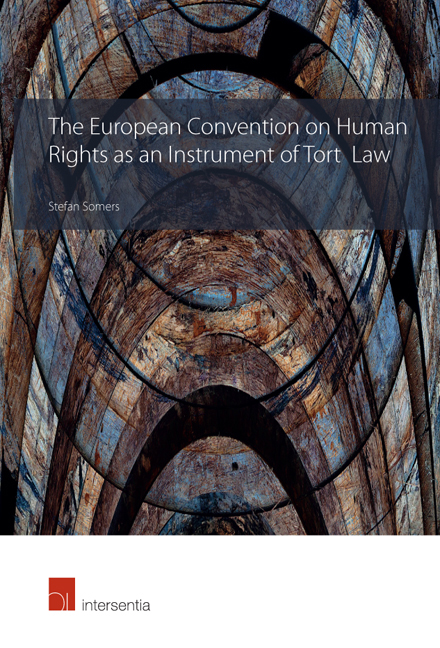Book contents
- Frontmatter
- Dedication
- Contents
- List of Cases
- Introduction
- Chapter 1 Human Rights in Horizontal Relations
- Chapter 2 Articles 13 and 41 ECHR and State Liability
- Chapter 3 The Interaction between Articles 13 and 41 ECHR and Liability in Horizontal Relations
- Chapter 4 Tort Liability as a Violation of Human Rights
- Chapter 5 Article 41 as an Alternative Tort Law System
- Chapter 6 General Outline of Article 41 of the Convention
- Chapter 7 Damages
- Chapter 8 Fault and Blameworthiness
- Chapter 9 Causality
- Chapter 10 Restitution
- Conclusion
- Bibliography
- About the Author
Chapter 5 - Article 41 as an Alternative Tort Law System
Published online by Cambridge University Press: 31 January 2019
- Frontmatter
- Dedication
- Contents
- List of Cases
- Introduction
- Chapter 1 Human Rights in Horizontal Relations
- Chapter 2 Articles 13 and 41 ECHR and State Liability
- Chapter 3 The Interaction between Articles 13 and 41 ECHR and Liability in Horizontal Relations
- Chapter 4 Tort Liability as a Violation of Human Rights
- Chapter 5 Article 41 as an Alternative Tort Law System
- Chapter 6 General Outline of Article 41 of the Convention
- Chapter 7 Damages
- Chapter 8 Fault and Blameworthiness
- Chapter 9 Causality
- Chapter 10 Restitution
- Conclusion
- Bibliography
- About the Author
Summary
The previous chapters discussed how states can be forced to provide tort law remedies in order to provide an effective remedy under Art. 13 ECHR. A consequence of this is that states must provide compensation that are in line with those of the ECtHR based on Art. 41. This raises the question of whether the Court can act as an alternative forum when national courts grant only a limited financial compensation for human rights violations. If this would be the case, the Court could be used as an instrument to get full compensation when national courts refuse to grant full compensation. The Court could then be used as leverage in national compensatory schemes.
REQUIREMENTS OF ADMISSABILITY
Before the ECtHR can award compensation to a human rights victim, the victim needs to file an admissible claim. This raises the question whether a claim will be admissible if an applicant has already been awarded compensation under national law. Indeed, if someone files a claim before the ECtHR, he must exhaust all national remedies and must prove that he has an interest. Since the 14th protocol entered into force, an applicant must not only prove that he has an interest in the claim, but also that the alleged violation of the Convention caused him some significant disadvantage. What is of utmost importance in the context of this book, is the fact that the Court often takes its own jurisprudence on Art. 41 into account when ruling on the admissibility of a claim.
In a study that was carried out by the registry of the ECtHR, it was pointed out that almost all of the applicants that filed a claim for an alleged violation of Arts 2 or 3, or for an alleged violation of the reasonable time requirement, were deemed to have suffered a significant disadvantage due to the alleged violation. This is interesting for two reasons. The first reason is that an effective national remedy for the protection of these rights requires moral damages. Secondly, it must be noted that, in principle, under Art. 41 the Court always grants financial redress if the substantial aspects of these Convention rights are violated.
- Type
- Chapter
- Information
- Publisher: IntersentiaPrint publication year: 2018



